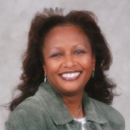 Georgene Rice of KPDQ-FM, Portland interviews Andrew McCarthy, author of Willful Blindness, a memoir of Jihad to help understand why this war is a war and why we have no choice but to fight it and win it. Andrew McCarthy was a top prosecutor against several terrorists in the ’93 bombing of the World Trade Center. He helped launch the 9-11 investigation.
Georgene Rice of KPDQ-FM, Portland interviews Andrew McCarthy, author of Willful Blindness, a memoir of Jihad to help understand why this war is a war and why we have no choice but to fight it and win it. Andrew McCarthy was a top prosecutor against several terrorists in the ’93 bombing of the World Trade Center. He helped launch the 9-11 investigation.
GEORGENE: Years had passed since the World Trade Center was first bombed in 1993. I think everyone was surprised because they thought our government had it under control. Then 9-11 happened.
McCARTHY: It was an interesting evolution for me. I had no familiarity with Islam and Islamic motivated terrorism before the ’93 bombing. I wanted to believe all the admirable things that were said about Islam. I believed when the government said it was important in terms of our reputation in the world that we show the civility through our legal system of how we treat our enemies in contrast to how they treat us. Going through a trial like that showed me the naivete’ of that thinking. By ’98 we should have known it was something far bigger than we thought in the beginning. And the criminal justice system was not an adequate way of dealing with the challenge we were up against. After 9-11 no one sat behind a table and said, “Was this a war or a crime”.
GEORGENE: When would you say the “War on Terror” in this country first began and should have thought more critically about what we were facing.
McCARTHY: I’m comfortable in calling the ’93 bombing radical Islam’s Declaration of War against the United States because it took things to a different level. That bombing was their way of saying, “We can hit you in your own back yard in the beating heart of your financial center”. It is a much missed point that radical Islam has a big problem with capitalism. Hitting the financial capital of the West was a big deal to them and why they came back and hit it a second time.
GEORGENE: The title of the book, Willful Blindness, makes the point that there are things our government consciously fails to do that makes us vulnerable.
McCARTHY: At the time ’93 happened we didn’t know who had attacked us when we started taking people into custody, so I don’t know that we would have ever treated it as an act of war and who to declare war against. In the ’93 bombing only six adults were killed so it may not have been considered a crime rather than an act of war. But, in the trial we exposed that the place they set the bomb and the use of cyanide in hopes of aerating in the explosion was intended to reach out to kill tens of thousands of people. That they killed only six which was a miracle. By 9-11 the trend was apparent and we should have known that it we were up against much more than a crime wave.
We continue to look at the religion of radical Islam in mainstream terms. Rather than terrorism we are referring to it as violent extremism. The Christmas bomber was instantly called an isolated extremist. This came just weeks after Fort Hood which no one wanted to acknowledge as a terrorist attack, yet he killed twice as many people than those at the ’93 bombing.
The first rule of warfare is to know your enemy. If you won’t even acknowledge who your enemy is and what motivates him, you don’t have a prayer of stopping what he’ll do next. But religion, and particularly radical Islam has become such a third rail for us we refuse to acknowledge it.
GEORGENE: How do the terrorists view our failure to acknowledge them? What difference would it make for us to recognize this war.
McCARTHY: If they drop bombs and we hit them with subpoenas and indictments, as Osama Bin Laden said, they see us as the weak horse and they are the strong horse. There is a reason we haven’t had a reprise of 9-11. We were willing to treat it as a war. Appreciating the problem and dealing with it in military actions and the justice department as a subordinate, rather than the other way around, lessens the chance of further attacks being carried out. Dead and captured terrorists don’t blow things up.
Disclaimer: Articles featured on Oregon Report are the creation, responsibility and opinion of the authoring individual or organization which is featured at the top of every article.


